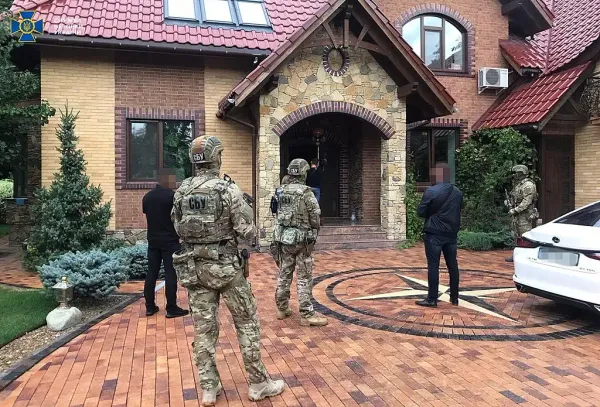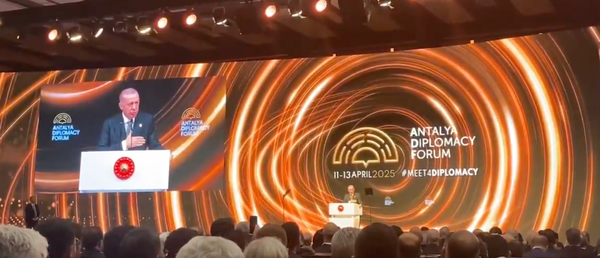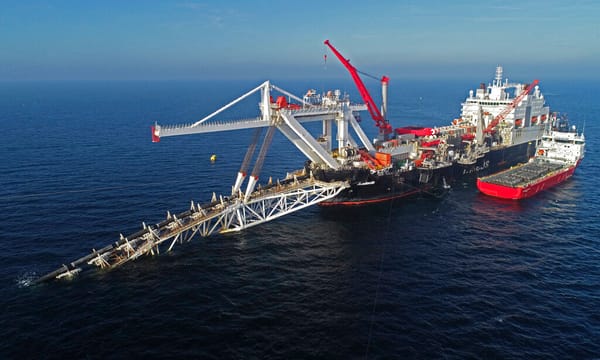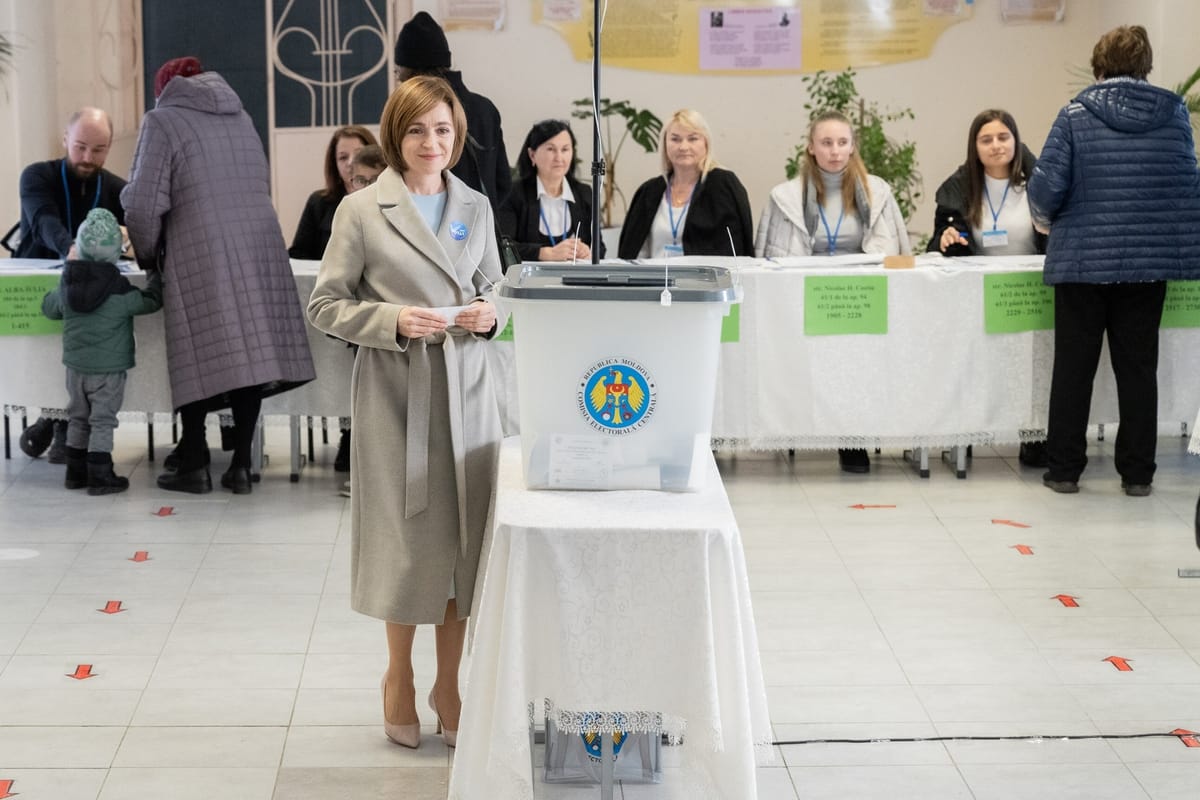
Moldova pivots to EU in presidential vote
Moldovan President Maia Sandu defeated her pro-Russian rival Alexandr Stoianoglo by around 55% to 45% in the presidential second-round vote on Sunday, 3 November.
While Stoianoglo was ahead in rural areas, the south, and the breakaway republic of Transnistria, pro-EU Sandu took Chisinau and other cities and was also the favoured candidate for younger citizens and Moldovans voting from abroad.
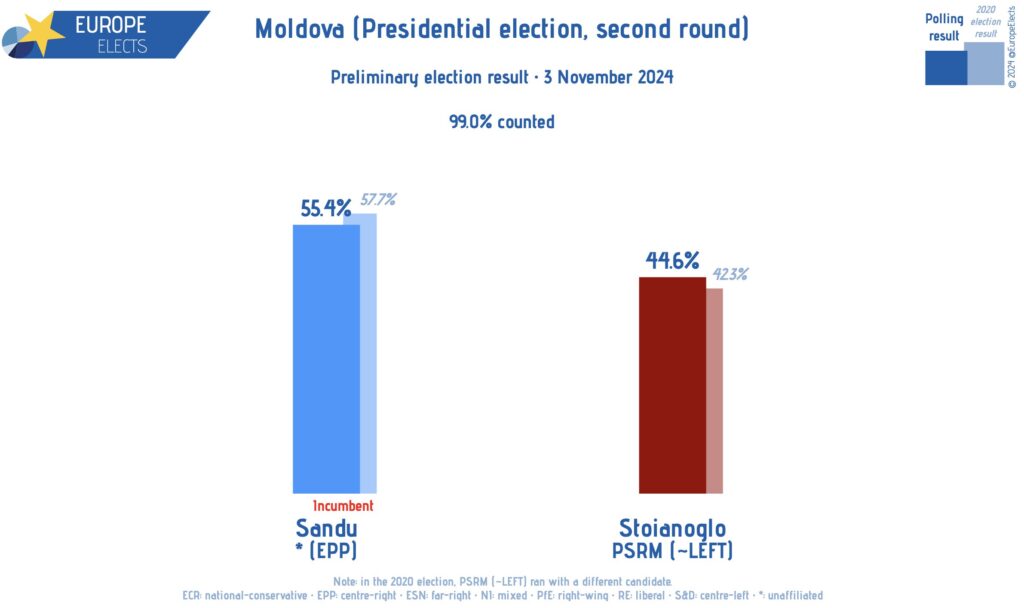
The campaign was marked by reports of Russian electoral interference in the EU-candidate country, which has a population of just over 3mn people. In her victory speech on Sunday evening, Sandu said: “Moldova, you are victorious! Today, dear Moldovans, you have given a lesson in democracy, worthy of being written in history books. Today, you have saved Moldova”.
Sandu said the election had seen an unprecedented attack on Moldova’s democracy from dirty money, vote-buying “by hostile forces from outside the country”, and criminal gangs. “You have shown that nothing can stand in the way of the people’s power when they choose to speak through their vote,” Sandu said, adding “walk with pride—you are freedom, hope, and resilience. I am proud to serve you all.”
Romanian Prime Minister Marcel Ciolacu congratulated Sandu and said Moldovans had chosen to defend their democracy and continue on a pro-EU path, confirming “not only their courage, but also their full confidence in their European future.”
Ukrainian President Volodymyr Zelenskyy wrote on X that “Moldovans have made a clear choice—they chose a path toward economic growth and social stability.”
European Commission President Ursula von der Leyen also congratulated Sandu, saying “it takes a rare kind of strength to overcome the challenges you’ve faced in this election.”
Moldova became ‘proxy battleground’ for Russia
The second presidential election round became a litmus test for Moldova’s future path being EU integration or a reversion to the sphere of Russian influence. In the first round two weeks earlier, Sandu had secured approximately 42% of the vote, falling short of the simple majority required for outright victory. In a parallel vote, Moldovans also narrowly voted in favour of constitutional changes to state the country’s future as EU-facing.
Stoianoglo, a former prosecutor general who Sandu earlier fired from that post last September, garnered about 26% on a “balanced foreign policy” ticket that claimed to intend to harmonise relationships with the West and Russia. Before the results came in, Stoianoglo said: “everyone’s voice deserves respect (and) from now on, we will put an end to the hatred and division imposed on us.”
Shoring up Kremlin support
Nevertheless, the campaign was clouded by allegations of extensive Russian interference in the electoral process. Sandu’s national security adviser Stanislav Secrieru accused Russia of attempting to distort the voting outcome through vote-buying schemes, allegedly orchestrated by fugitive oligarch Ilan Shor. Reports say Shor used millions of euros to secure support for Stoianoglo. Estimates indicate that as many as 300,000 Moldovan votes were secured via Shor’s vote-buying scheme.
The Kremlin has denied any involvement in Moldova’s elections, echoing similar rejections in other post-Soviet states facing accusations of Russian interference. However Sandu has characterised Stoianoglo as a “Trojan Horse” undermining Moldova’s sovereignty to facilitate a Kremlin agenda—a claim that resonated with many Moldovans wary of returning to the country’s Russian-dominated past.
Amid rising inflation and economic distress catalysed by the war in Ukraine, public sentiment is mixed. Sandu’s governance has undeniably advanced Moldova’s EU aspirations, initiating accession talks earlier this year. However difficult socio-economic circumstances have created fertile ground for Stoianoglo’s appeal among disillusioned voters.
Reports of illegal voter transportation
Voter turnout was high, with long lines at polling stations, including in diaspora communities across Europe, where a majority supports pro-EU candidates. However, concerns lingered about possible orchestrated transportation of voters from regions known for their pro-Russian sentiment, such as the breakway republic of Transnistria.
Stoianoglo, while pledging support for continued EU integration, also proposed renegotiating energy ties with Russia, a strategic vision that could hinder the alignment he claims to support. His dual narrative allowed him to attract a diverse voter base, striking a chord with those in economic strife, while also pushing nationalistic buttons.
As Moldova’s electoral commission reported coordinated transportation of voters and cybersecurity threats, as analysts and citizens said the outcome of the run-off would steer Moldova toward European integration or increased Russian influence.
“The stakes are high,” one voter told reporters on the ground in Moldova, characterising the vote as representing “whether we align with Europe or look back towards Russia”.

